What is TikTok, is the app dangerous for children and what should parents know?
What is TikTok?
It is a Chinese video app that allows users to create and share short videos with special effects.
It was the world’s most downloaded app in the first quarter of 2018, with an estimated 45.8 million downloads.
Jokes, clips and footage dominate the platform, along with memes and videos in which youngsters, some scantily clad, lip-sync and dance to popular music.
It is a video-only interface makes it less elaborate and easier to use than platforms such as Facebook or Twitter.
The popular social network app is most popular among children under 16.
It is like Karaoke but for the digital ageCredit: Alamy
Is the app dangerous for children?
A BBC Trending investigation found video-sharing app TikTok failed to remove online predators who were sending sexual messages to teenagers and children.
Over three months, the investigation collected hundreds of sexual comments posted on videos uploaded by teenagers and children.
While the company deleted the majority of these comments, the users who posted them were able to remain on the platform, despite TikTok’s own rules against sexual content directed at children.
The BBC was also able to identity a number of users who, again and again, approached teenage girls online to post sexually explicit messages on their videos.
In the course of this investigation, the BBC came across several accounts run by children under 13.
Some are as young as nine years old.
But, despite these findings, TikTok has no plans to start verifying user’s age in the UK, or anywhere outside of the United States.
All comments found by the BBC were reported to TikTok using the same tools available to any user of the app.
What is the new investigation?
Information Commissioner Elizabeth Denham has launched a probe over concerns predatory adults can freely message children on it.
She said that while one in five Brits online are kids, tech giants and online gaming companies have failed to do enough to protect them.
The data tsar said: “We know that the internet, games, websites and social media companies were not designed with kids in mind, and yet 20 per cent of the users of the users of the internet in the UK are children.
“And the kids are not alright. We need to focus on the kids.”
She was quizzed by the culture committee as part of their inquiry into kids getting hooked on gaming.
Her stark warning to MPs came after campaigners raised the alarm over the app, which lets users post clips of people dancing to music.
The Sun Online recently revealed kids as young as eight have been targeted by predators on the app, which has a staggering 500million users worldwide.
Videos of young schoolchildren innocently singing or dancing attract swarms of sexually suggestive comments.
And parents have been horrified to see their children receive aggressive direct messages from older men.
Grilled by MPs on the culture committee, Ms Denham said: “We are investigating a company named TikTok.
“We are looking at the transparency tools for children, the messaging system, the kind of videos collected and shared by children online.”
What do the experts say?
John Carr, one of the UK’s leading experts on child online safety, warned of the controversial app: “There’s no question an app like this is a magnet for paedophiles.”
TikTok bosses have already been fined £4.3million for collecting data on US kids including their names, locations and email addresses.
Andy Burrows of the NSPCC said: “The Information Commissioner’s investigation into TikTok, and whether its site design puts children at risk of grooming and abuse, is significant.
“Social networks have made little progress in protecting children on their platforms so it is imperative that the new Prime Minister makes this a priority and the Government now works swiftly to build on its bold and ambitious proposals and brings in legislation that will make the UK the safest place for children to be online.
“Recent research also showed us that nine out of ten children and parents also agree tech firms should have legal responsibility to keep young users safe.”
“Tik Tok is Scamming People & Stealing Information”
Tik Tok is an app where people can post quick videos of lip-syncing, dancing, and their own audio. Tik Tok launched in China in 2016, and by 2018 it was one of the most downloaded apps in all of the IOS app store. In August of 2018, the app Musical.ly, which was very popular in America and Australia, announced that it was going to combine with Tik Tok. This was big news in many online communities, as Musical.ly was where various stars such as Loren Gray and Baby Ariel gained massive followings and created official careers on and off the platform. As of October 2018, Musical.ly officially merged with TikTok and transferred all major profiles off of Musical.ly. However, with the new app came the changes to the privacy policy/terms of service, and many of them are incredibly concerning.
After speaking with a lawyer, and showing them the contents of Tik Tok’s privacy policy and terms of service, it appears that the app contains contradictory language, inconsistent application, unintelligible onerous provisions, and it mandates arbitration. Arbitration prohibits filing lawsuits and class actions- meaning that nobody can sue as a collective group, results are binding, and no appeal is possible, regardless of crimes committed by or on the app.
One of the most concerning aspects of the terms of service is that it bars anyone under the age of 18 from utilizing the platform. However, the app uses what appear to be minors in advertisements, transferred minors’ profiles from Musical.ly, and clearly allows minors on to their trending page. The app is also marketed towards kids and marks the app as “12+” in the app store. Tik Tok claims to care about the safety of children but is very blatantly aware of their presence on the app.
Furthermore, the terms of service and privacy policy go for pages and pages, with tabs, links, and other ways of making the restrictions difficult to fully follow and comprehend, especially for the everyday user.
Tik Tok as a company is riddled with data scandals. In May of 2018, an investigation found that there were almost no privacy features on the app, allowing users’ personal information to be stolen. A great deal of the information stolen was from elementary school children. This was concerning because at the time in Hong Kong, Tik Tok was not to be used by anyone under 16 years of age. Tik Tok claimed that they worked to remove underaged children from the app, but after this investigation The South China Morning Post (SCMP) used the app’s flagging feature and reported three children users. SCMP had “not received any feedback or seen the accounts terminated” a week later. In July of 2018, China’s government took Tik Tok off the internet completely. When the app came back: it contained new age restrictions and censorship policies. China’s censorship is one
of the most extensive ones in the world. Typically, companies are wary to store data in China because storing data there gives the government exceptionally easy data mining capabilities. However, Tik Tok’s company is under close surveillance by the Chinese government. Musical.ly was bought by Tik Tok’s parent company, Bytedance, in 2017. The fact that the two apps share a parent company means that both companies have been incredibly quiet about government interference, and the fact that they store and process user data in, “United States of America, Singapore, Japan or to China.” This data vulnerability is deeply worrisome and should ward off users of the app.
Comedian, actor, and YouTuber Cody Ko posted a video to YouTube on October 17th, trying out the Tik Tok app, but what followed for him sheds a sliver of light onto Tik Tok’s capabilities as a company and their access to private information. Ko posted a video where he recreated different six second Tik Toks videos for his 1.6 million subscribers on YouTube. After this video was posted, many fans of his started to notice that clips of him were being used in ads on Facebook. In response to the use of his face in ads, Ko posted a video on October 30th titled, “Tik Tok is trolling me”, wherein he explained that his account and videos were completely private. This means that the company had to deliberately access his account, as it would be against YouTube’s terms of service for Tik Tok to take Ko’s photo from his video, and use it in an ad. Tik Tok then took his private Tik Toks and repurposed them his for promotional reasons. Ko pointed out that what Tik Tok is doing is technically legal as they reserve the right to basically adapt and use anything you make on the app for promotions, as well to give said content to third parties for similar reasons. Cody Ko’s story exemplifies Tik Tok’s unchecked and alarming authority, Ko noted people should be more careful using the app going forward.
Tik Tok is leaving many users in the dark about the company’s policies, past, and practices, by deliberately making information difficult to access and navigate. They’re hiding disturbing abuses of power, ignoring their own community guidelines, and offering personal information to third parties and the Chinese government. While Tik Tok’s popularity only continues to grow in the West, users should take extreme caution with what they post. These videos could resurface for any purpose at any time, anywhere in the world.
What should parents know?
When signing up on TikTok, user profiles are made “public” by default.
This means anyone can view videos that your children upload.
They can send direct messages to them and access where they live.
BE INDIAN, let’s boycott chinese app tik tok.
JAY HIND












